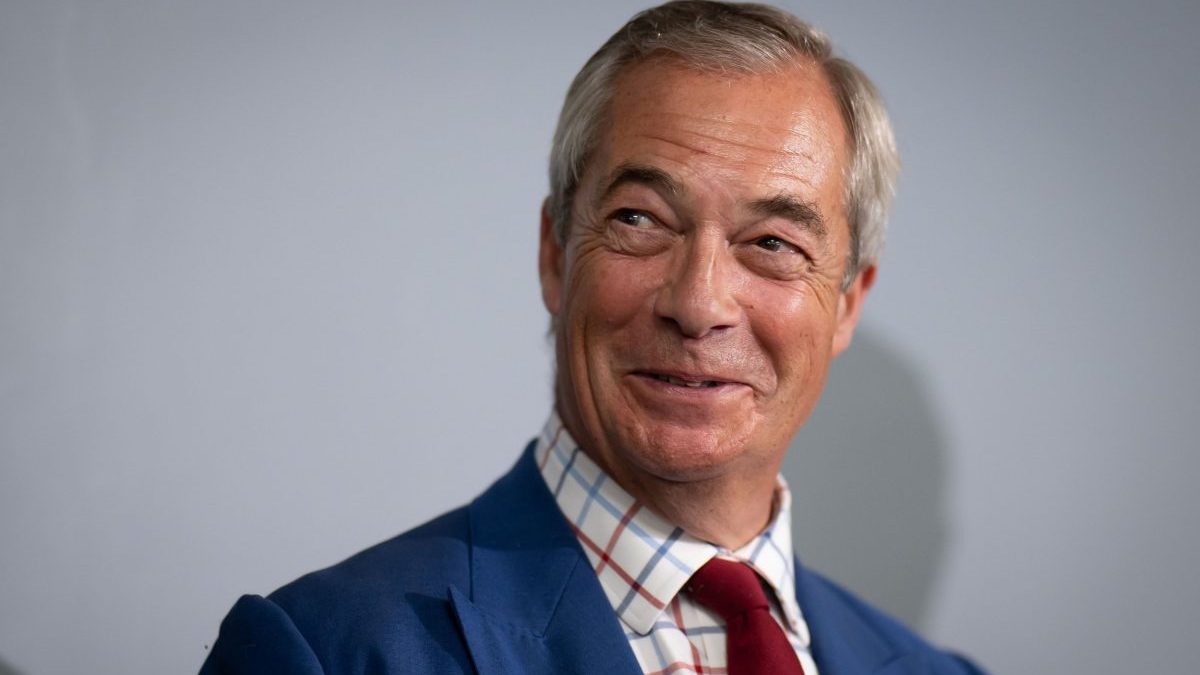Reform leader’s remarks go further than Labour, which has avoided questions about what will happen to the policy in the long term
Nigel Farage has said he “won’t absolutely commit” to continuing the state pension triple lock if Reform UK wins power at the next election.
The Reform UK leader, whose party is leading in the opinion polls, said continuing with the triple lock would “all depend on, as a country, what we can afford”.
The long-term future of the policy, which guarantees the state pension will rise each year by whatever is highest out of inflation, average earnings growth or 2.5 per cent, is set to become a major flashpoint at the next election, due in 2029.
Along with considering potential changes to the state pension age, political parties will have to grapple with how to pay for the triple lock’s increasing cost, which is expected to be nearly three times higher by 2030.
Introduced by the Conservative-Liberal Democrat Coalition in 2010, the guarantee was designed to ensure pensions kept pace with rising living costs and earnings while providing a minimum increase.
But it has come under further scrutiny after the official finance watchdog, the Office for Budget Responsibility (OBR), warned the UK economy was in a “vulnerable position” and pinpointed the triple lock’s spiralling cost to the Treasury.
Labour has committed to the triple lock for this Parliament but has so far avoided questions on what it would do beyond that.
Reform UK’s leader declined to offer a timeline for setting out his party’s full position on the triple lock, having previously told reporters in May that it would be published “between now and the next election”.
It comes after Farage said the state pension age was “inevitably” going to have to rise and that he was concerned that pensions are “unaffordable at a national level”.
Addressing a separate press conference last week, he said he shared “the concern with pensions being unaffordable at a national level” and added that he suspected Chancellor Rachel Reeves would seek to reduce pension tax relief this autumn to help close a gap in the Government’s fiscal plans.
Work and Pensions Secretary Liz Kendall announced last week that the Government would resurrect the Pensions Commission – a New Labour-era quango – to investigate how to improve retirement savings and examine when the state pension age should next rise.
It is not expected that any decisions on these issues will be finalised before the next general election; however, this means the issue could come to the forefront in a future national ballot.
Farage had previously stated, in May, that he would set out Reform’s full stance on the triple lock “between now and the next election”, but ruled out giving an update on Monday.
Asked by The i Paper on Monday whether he supported continuing the triple lock, he said: “As far as the triple lock is concerned. I’ve been asked that question before. I didn’t answer it before. I won’t answer it now. I won’t absolutely commit to us keeping it. It will all depend on, as a country, what we can afford.”
The Conservatives have also suggested they may review the future of the triple lock. In January, Kemi Badenoch indicated that her party may “look at means‑testing” the state pension in the future, signalling a significant shift from the policy’s universal promise.
The Tory leader later clarified, however, that the triple lock remains a Conservative policy, emphasising that the party has supported it “throughout our 14 years in Government”.
In contrast, the Liberal Democrats have firmly declared they will retain the triple lock under all circumstances. Party leader Sir Ed Davey has reaffirmed that the Lib Dems were the architects of the policy during the Coalition years and pledged that they will uphold it “under any circumstances” in the next parliament.
‘Serious challenges’ facing UK pensions
The OBR warned at the start of July that the UK’s finances are on an “unsustainable” track and the country “cannot afford the array of promises” that have been made by the Government, with debt on track to rise from 94 per cent of GDP to 270 per cent by the early 2070s.
One big driver of this increase is set to be the pensions triple lock, which the watchdog warned will be three times more expensive by the end of the decade than it was expected to be when it was introduced in 2011, costing £15.5bn by 2030.
These concerns were echoed by the Institute for Fiscal Studies (IFS), which warned in its recent pensions review that there are “serious challenges facing the UK pension system and substantial risks to the finances of future generations of pensioners”.
It proposed that the Government should set a target for how generous the state pension should be, such as a certain proportion of average earnings, and scrap the triple lock once that target is reached.
Instead, the IFS suggested that the state pension would just rise in line with whichever is higher — inflation or average earnings — but not 2.5 per cent automatically any more.
Last week, the International Monetary Fund also warned that the Chancellor would either have to raise taxes or reconsider the triple lock’s future.
In a final version of an annual report on Britain’s economy, the Washington-based organisation said that “the triple lock could be replaced with a policy of indexing the state pension to the cost of living”.
